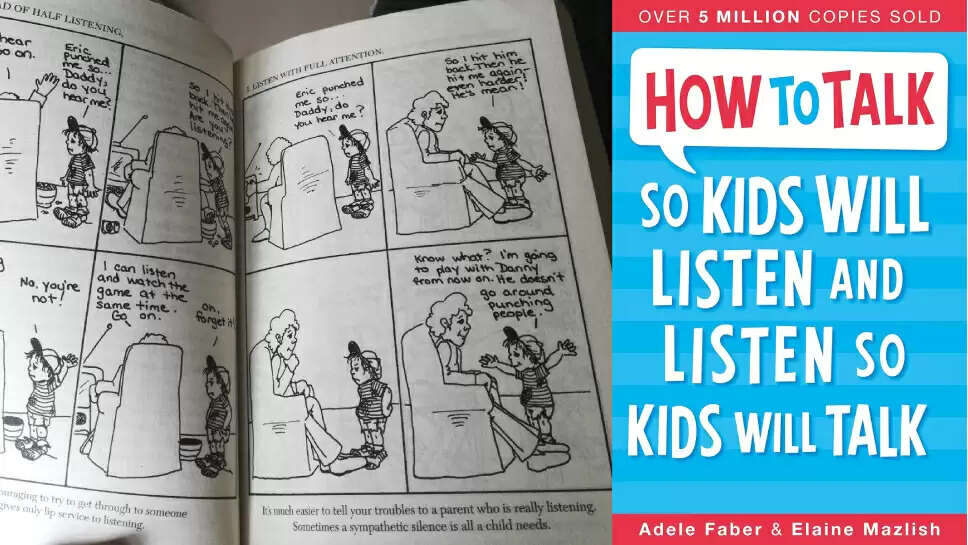Effective Communication with Children: Insights from "How to Talk So Kids Will Listen & Listen So Kids Will Talk"

Reading "How to Talk So Kids Will Listen & Listen So Kids Will Talk" by Adele Faber and Elaine Mazlish offers a wealth of insights into effective communication and respectful parenting. This influential book is filled with practical strategies that can transform the way parents interact with their children, leading to healthier, more understanding relationships. Here are seven key lessons from the book, each with its unique approach to fostering better communication and cooperation:
1. Acknowledge Feelings: An important idea in the book is that parents should acknowledge and validate their children's feelings. When parents do this, they show empathy and respect, which makes children feel understood and allows for open, honest communication. Parents can create a safe space for children to express themselves by actively listening and reflecting those feelings back to them.
2. Engaging Cooperation: Faber and Mazlish talk about ways to get people to work together without using standard punishments or rewards. Children can make decisions that are in line with what their family expects of them when they are told about a problem without passing judgement, given relevant knowledge, and given choices. This method encourages kids to be responsible and work together, which makes them more likely to work together freely.
3. Alternatives to Punishment: Instead of resorting to punitive measures, the authors suggest alternatives that focus on teaching and problem-solving. For example, expressing disapproval without criticizing the child's character, clearly stating expectations, and allowing children to make amends for their actions are effective ways to address misbehavior. These methods promote a learning experience rather than fostering resentment or fear.
4. Encouraging Autonomy: Faber and Mazlish stress how important it is to teach kids how to make choices and fix problems on their own. This makes them more independent and boosts their self-esteem. The book gives useful advice on how to encourage independence, like letting kids deal with the natural outcomes of their actions and recognising their efforts to deal with problems, even if they fail. This method helps kids learn how to think critically and be strong.
5. Effective Praise: The writers stress how important it is to give specific, detailed praise instead of compliments that are too general or vague. Giving specific praise that tells the child exactly what they did right helps them understand what they did right and reinforces good behaviour. A parent might say something like, "I really appreciate how you finished your homework on your own before dinner," instead of "Good job." This kind of criticism is more helpful and meaningful.
6. Freeing Children from Playing Roles: The book talks about how names or roles, like "the shy one" or "the troublemaker," can make a child feel less capable and less sure of themselves. Focussing on and celebrating children's good traits and abilities is one way that Faber and Mazlish suggest getting rid of these limiting labels. Parent can help their kids grow beyond their jobs by focussing on what they can do instead of what they are labelled as.
7. Problem-Solving Skills: Teaching children problem-solving skills is a key focus of the book. The authors guide parents on how to involve children in finding solutions to their own conflicts and challenges. This approach helps children learn to navigate problems independently and fosters a sense of competence and confidence. By encouraging children to think critically and explore various solutions, parents can equip them with valuable skills for handling future difficulties.
These lessons from Faber and Mazlish's book show you how to communicate better with kids and build stronger, more respectful relationships with them.

Book: https://amzn.in/d/4KAwnlQ
--
-- Class Dismissed --
You Might Also Like: The Secret Diary of Hendrik Groen, 83 1/4 Years Old
